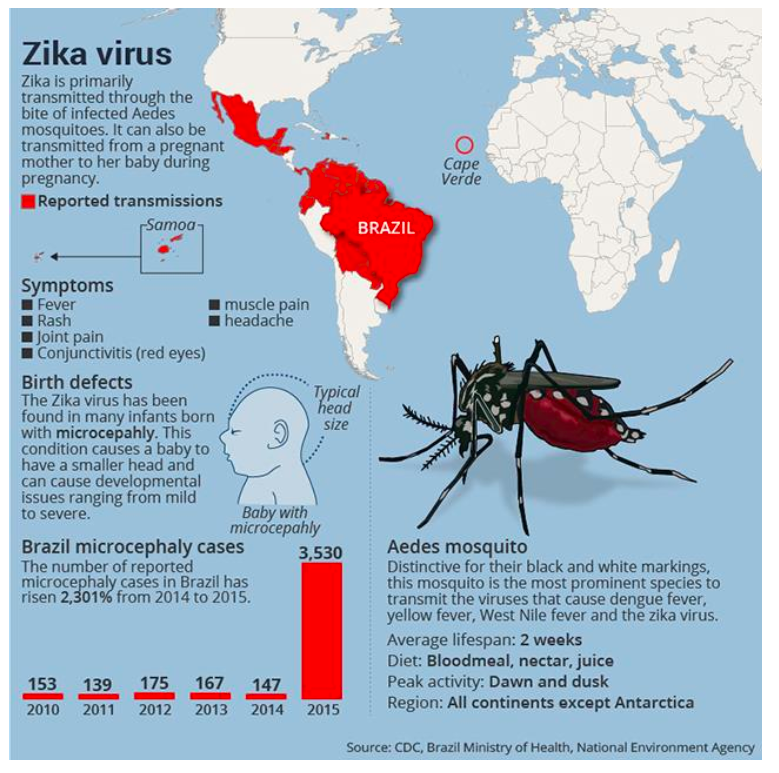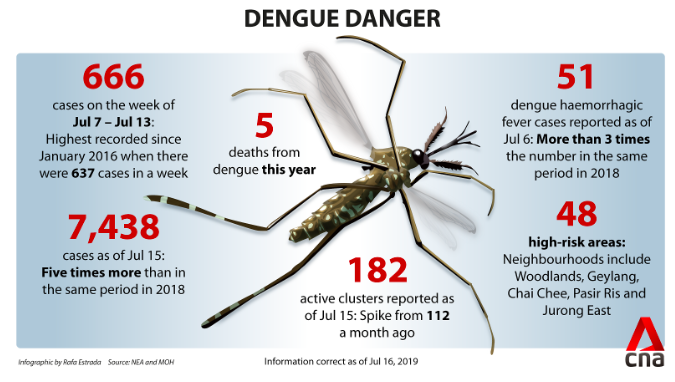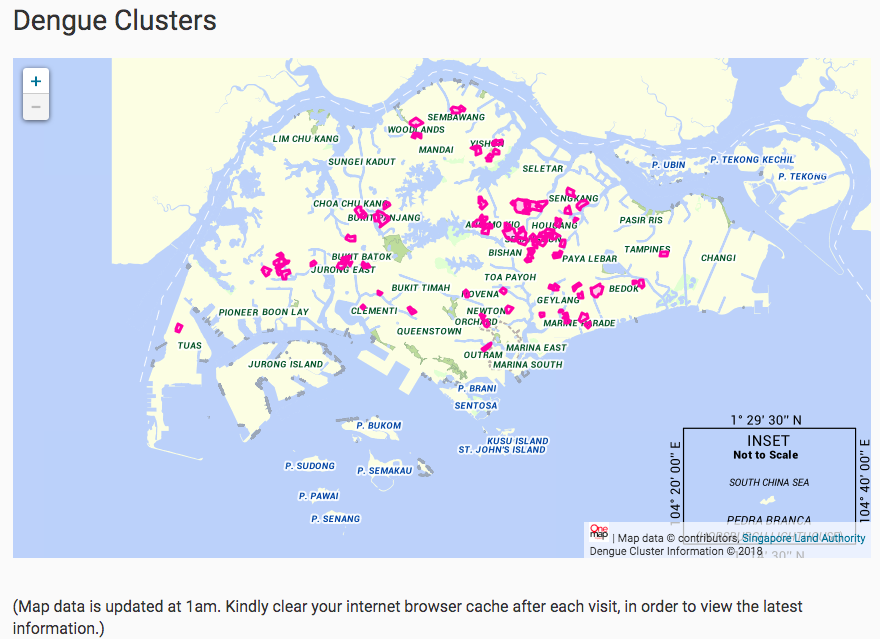What are Vector-borne diseases?
TASK:
Watch the following 2-minute video overview on vector-borne diseases
Watch the following 2-minute video overview on vector-borne diseases
CHOOSE YOUR VECTOR !!!
In the section below, there are several different types of diseases spread by vectors (insects, arachnids, etc.)
You can choose which vector disease case study you would like to focus on. Complete the task for the case study you select.
You can choose which vector disease case study you would like to focus on. Complete the task for the case study you select.
Vector Case Study #1: Zika Virus in Brazil
|
TASK:
Watch the following 2 1/2-minute animated video mapping the spread of the Zika virus. What types of spread does it show at the global scale? (Hint: if you don't know, after watching the video, go to the main webquest page to review the slideshow at the bottom) |
|
Vector Case Study #2: Dengue Fever in Singapore
|
TASK:
Look at the map that shows the most recent clusters of dengue (map updated on Jan. 31st). Read/skim this article on the spike in dengue cases in Singapore in January 2020. Why is it challenging to prevent breeding of the Aedes mosquito that carries the dengue virus? read/skim the following ChannelNewsAsia article about the spike in cases of dengue in Singapore in 2019. Experts do not agree on why this has occurred. What are their different views on why? Click HERE to see the latest data from NEA on daily reports of dengue in Singapore |
Vector Case Study #3: Malaria
TASK:
Look at the maps (bottom left) provided by BusinessInsider. The first map is from 1900; the second is from 2010. What does this suggest about the perception of malaria as a "tropical" disease?
Read/Skim through the Malaria Fact Sheet provided by the World Health Organization (WHO) to learn more about this deadly disease. Record some of the statistics provided on the fact sheet.
Watch the video (bottom right) from World Health Organization (WHO). What does WHO suggest needs to be done to address reduction of malaria by 2030?
Look at the maps (bottom left) provided by BusinessInsider. The first map is from 1900; the second is from 2010. What does this suggest about the perception of malaria as a "tropical" disease?
Read/Skim through the Malaria Fact Sheet provided by the World Health Organization (WHO) to learn more about this deadly disease. Record some of the statistics provided on the fact sheet.
Watch the video (bottom right) from World Health Organization (WHO). What does WHO suggest needs to be done to address reduction of malaria by 2030?
Vector Case Study #4: Lyme disease in U.S.A.
TASK:
Look at the map and then skim through the article by Forbes on increases in Lyme disease in the U.S.
Watch the video (right). According to the video and the Forbes article...
What are the factors contributing to the uptick (pun intended) in the number of Lyme disease cases?
What health complications does Lyme disease pose to those that get infected?
What concerns are there about the spread of the disease and the ability to treat it?
Look at the map and then skim through the article by Forbes on increases in Lyme disease in the U.S.
Watch the video (right). According to the video and the Forbes article...
What are the factors contributing to the uptick (pun intended) in the number of Lyme disease cases?
What health complications does Lyme disease pose to those that get infected?
What concerns are there about the spread of the disease and the ability to treat it?
|
|


